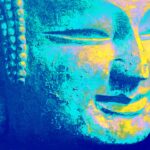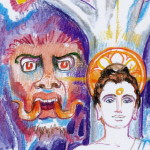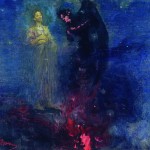Recent Comments
- Chodpa on The Place where the Primordial Speaks
- Chodpa on The Cuckoo of Presence
- Afzar on Bodhidharma’s teacher, Prajnatara
- Vajragoni on Audiobook is released
- Scott on Audiobook is released
-
Recent Posts
Categories
- A Darkness Visible
- A Docetic Assessment
- A Mystical Odyssey through the Sagathakam
- AI Creations
- Akṣayamatinirdeśasūtra
- Akṣhobhya’s Pure Land
- Ālaya-vijñāna
- Anūnatvāpūrṇatvanirdeśaparivarta
- Ariyapariyesanā Sutta
- Ascending the Noble Mountain of Primordial Perfection
- Asceticism
- Ashtavakra Gita in Light of the Unborn
- Audiobook
- Bankei Zen
- Beyond the Ascent
- Beyond the Rainbow Body
- Black Dragon Eye Mandala
- Bodhicitta
- Buddhadharma
- Buddhism’s Black Holes
- Buddhist Anecdotes
- Buddhist Hells
- Buddhist Meditations on the Tarot
- Chuang-Tzu
- Contemporary Musings
- Ḍākiṇī
- Dāsbodh
- Dharmakaya Abbey
- Dharmakaya Stick
- Divine Revelation
- Doctrine of the Void
- Dust Contemplation
- Ekacitta: Advanced Studies in Dark Zen
- Entry into the Dharmadhātu
- Eremitical Dhyani Meditations
- Exploring the Book of Revelation
- Gnostikos
- Hsin Hsin Ming
- Journey to the Center of the Mind
- Karma and Rebirth
- Korean Sŏn
- Kulayarāja Tantra—The Motherly Buddha
- Little Office of Our Lady of the Void
- LSD and Psychedelic Buddhism
- Māṇḍukya Kārikā
- Mañjuśrī Teaches Prajñāpāramitā
- Māra and Satan
- Meister Eckhart
- Mud and Water: Bassui Zen
- Mystagogia
- Nirvana
- Notes from the Iron Stupa
- Nothingness in Nāgārjuna and John of the Cross
- Obscure Religious Cults
- Preparation for the Afterlife
- Primordial Qigong
- Reflections on the Saṃdhinirmocana Sūtra
- Spirituality
- Springtime with Tozen
- Terma: A Mind Film by Vajragoni
- The Afterglow
- The Awakening of Faith
- The Bhagavad Gita
- The Book of Bodhi
- The Cloud of Unknowing in Light of the Unborn
- The Diamond Sutra
- The Divine Ātman
- The Divine Liturgy of Vajrasattva
- The Doctrine of Awakening
- The Dragon Mind of Zen Tarot
- The Elucidation of Consciousness
- The Experience of No-Self
- The Great Perfection of the Unborn Mind: A Book of Privy Counseling
- The Heart Sutra
- The Hermit's Den
- The Khaggavisāṇa Sutta: A Rhinoceros Horn
- The Lankavatara Sutra
- The Lankavatarian Book of the Dead
- The Lion's Roar of Queen Śrīmālā
- The Lotus Sutra
- The Mahāparinirvāṇasūtra
- The Naga Chronicles
- The Platform Sutra
- The Ratnagotravibhāgaśāstra
- The School of the Spirit
- The Secret Golden Light of the Unborn
- The Soul
- The Śūrańgama Sūtra
- The Sutra of Primordial Enlightenment
- The Tathāgatagarbhatārā Tantra
- The Udāna
- The Unborn Mind Mythos
- The Unborn Mind Sessions
- The Unborn Odyssey: A Novel
- The Vajrasamādhi Sutra
- The Vimalakirti Sutra
- The Yogasūtras of Patañjali
- The Zen Teaching of Bodhidharma
- The Zen Teaching of Instantaneous Awakening
- The Zen Teachings of Huang Po
- Theologia Mystica
- Tozen Teaching
- Tsung-mi: An Intimate Study
- Unborn I Ching
- Unborn Light Reiki
- Uncategorized
- Vasubandhu and the Absolute
- Wisdom from the Masters
- Wordsworth and Zen
- Yoga of the Manomayakāya
- Zen
- Zuowang
Archives
- October 2024
- August 2024
- February 2024
- January 2024
- December 2023
- November 2023
- October 2023
- September 2023
- August 2023
- July 2023
- June 2023
- May 2023
- April 2023
- March 2023
- February 2023
- January 2023
- December 2022
- November 2022
- October 2022
- September 2022
- August 2022
- May 2022
- April 2022
- March 2022
- February 2022
- January 2022
- December 2021
- November 2021
- October 2021
- September 2021
- August 2021
- May 2021
- April 2021
- March 2021
- February 2021
- January 2021
- December 2020
- November 2020
- October 2020
- September 2020
- August 2020
- May 2020
- April 2020
- March 2020
- February 2020
- January 2020
- December 2019
- November 2019
- October 2019
- September 2019
- August 2019
- June 2019
- February 2019
- January 2019
- December 2018
- October 2018
- August 2018
- April 2018
- March 2018
- February 2018
- January 2018
- December 2017
- November 2017
- October 2017
- September 2017
- August 2017
- May 2017
- April 2017
- March 2017
- February 2017
- January 2017
- December 2016
- November 2016
- October 2016
- September 2016
- August 2016
- July 2016
- May 2016
- April 2016
- March 2016
- February 2016
- January 2016
- December 2015
- November 2015
- October 2015
- September 2015
- August 2015
- July 2015
- June 2015
- May 2015
- April 2015
- March 2015
- February 2015
- January 2015
- December 2014
- November 2014
- October 2014
- September 2014
- August 2014
- May 2014
- April 2014
- March 2014
- February 2014
- January 2014
- December 2013
- November 2013
- October 2013
- September 2013
- August 2013
- May 2013
- April 2013
- March 2013
- February 2013
- January 2013
- December 2012
- November 2012
- October 2012
- September 2012
- August 2012
- May 2012
- April 2012
- March 2012
- February 2012
- January 2012
- December 2011
- November 2011
- October 2011
Meta
Tag Archives: samsara
The Lanka’s Nirvana

As a quick reference, the abridged version of the Lankavatara Sutra as found in the Buddhist Bible, Chapter XIII, offers a general overview of the Lanka’s take on Nirvana. Our Study will offer here a more extensive treatment as covered throughout the sutra. This is largely a compilation from the Complete Lanka and Discussion as found in our library.
Posted in Nirvana
Tagged Four kinds of Nirvana, icchantika, itaretara, manovijñāna, MEANING, nirvana, Samadhi Mayopama, samsara, Tozen
3 Comments
The Mind of Zen

When it comes to matters of Spirit, and the innate Mind animating its will; Great minds discuss ideas around its true nature, relying solely on the light of its absolute reality as origin of their wisdom.
Towards a Psychology of the Māras, Part I

The Sacred India Tarot
At the outset here one needs to be aware that the context in which Māra(s) is spoken is mythic in scope. Far more than any cognitively-based amalgams of collective-experiences shared in the human psyche—this mythos is more-than-human. It involves cosmic-forces that have been around longer than the early dawn of mankind’s limited evolutionary experiences. As Robert Warren Clark states in his excellent Dissertation, Māra: Psychopathology and Evil in the Buddhism of India and Tibet:
Posted in Māra and Satan
Tagged Abhisankhāra-Māra, amānuṣamāra, ātmagrāha, catvārimāra, Devaputramara, Khandha-Māra, Kileśa-Māra, kleśa, kleṣamāra), liberation, Maccu-Māra, Mara, Māradhatu, maranamāra, mṛtyupatimāra, myth, Patañjali, prajnaparamita, psychopathology, Robert Warren Clark, samsara, Six Paramitas, skandhamāra, the four Maras, Vikalpa, vikalpanāmā
Leave a comment
Etymology of the Evil Ones

Evil is wide and prevalent in our Saha-World. Unlike the Truth, it assumes an endless array of faces and embeds itself unmercifully in all the assorted-affairs of sentient beings. The dominant Western and Eastern terms for these faces of evil are Satan and Māra. The term “Satan” is derived from a Hebrew term meaning, the adversary. The popular term “Devil” is derived from the Greek, diabolos. Both of these terms are found in the New Testament and later on in the writings of the Church Fathers. Throughout the Millennium he’s also referred to as the “Dark-One”, the “Black-One” and the “wicked-one”; the term, the evil-one appears in a popular translation of the “Our Father” prayer—deliver us from the Evil One. Traditionally, Satan was originally the premier Angel of Light (son of the morning) in Heaven, named Lucifer; through his own conceited vanity, he tried to usurp the very throne of the Most High. John Milton’s Epic poem, “Paradise Lost”, describes this most evil of all adversaries:
Posted in Māra and Satan
Tagged Devil, diabolos, Evil, Evil One, Frankenstein, John Milton, Kanha, Lucifer, Mara, Māra kali cakram, Paradise Lost, Picture of Dorian Gray, samsara, Satan, the adversary, the Dark One, the Evil One, the True Story
1 Comment
Coming Soon: Māra and Satan

On Ash Wednesday, February 18th, roughly 1.2 Billion across the globe will be ushering-in the season of Lent. One of the passages from scripture that always begins this solemn season, is the one in which Jesus is tempted by Satan for 40 days in the Desert. This is a highly symbolic event, since Lent itself lasts 40 days; and so, during this stretch of time, one is asked to do assorted penances and make new resolutions, ones that are in tune with self-denying one’s carnal appetites, in favor of a highly spiritual-makeover. In a very real way, one is also seeking refuge from the forces of evil in the world, ones that are always afoot attempting to wreak havoc on a soul that is trying to better itself. There are parallels in both Christianity and Buddhism that personify these dark forces, the Fathers of Evil if you will. Hence we have Satan, and Māra. Back in 1975, James W. Boyd, published a well-informed book, Satan and Māra: Christian and Buddhist Symbols of Evil. Unfortunately his work is long out of print, but I was recently fortunate enough to find a copy. Beginning on Ash Wednesday, we shall be exploring in depth these interesting parallels between Satan and Māra. It’s by no small chance that Siddhartha Gautama experienced similar inclinations from Māra that Jesus did from Satan throughout his Dark night of the Soul in the desert.
Posted in Māra and Satan
Tagged Evil, James W. Boyd, Mara, Robert Warren Clark, samsara, Satan, Temptation
5 Comments
The Realm of Suchness

(Hakeda)
- THE ESSENCE ITSELF AND THE ATTRIUBUTES OF SUCHNESS, OR THE MEANING OF MAHĀ
A.The Greatness of the Essence of Suchness
[The essence of Suchness] knows no increase or decrease in ordinary men, the Hīnayānists, the bodhisattvas, or the buddhas. It was not brought into existence in the beginning nor will it cease to be at the end of time; it is eternal through and through.
Posted in The Awakening of Faith
Tagged dharmakaya, form, light, Mind, Mind-only, Nirmanakaya, Sambhogakaya, samsara, Suchness, tathagata-garbha
2 Comments
A Fiery Thirst
Evola next tackles the issue of Samsaric Consciousness. Self-consumption in samsara consists of the angst and continuum of lived experience; self-consumption is always flavored with momentary bits of consciousness that always return to the dark hole of impermanence. This is a great metaphor for the world of incessant becoming, one that is unsubstantial in nature. Everything in this inadequate globule is always contingent upon something else—thus dependently originated. The root science that investigates this tenuous affair is the breakdown of the Skandhas (Skt), or Khandhas (Pali):
Mamaki Rising
Mamaki raised Schäfer from his bed of sand and, taking his hand, led him into the deep recesses of Akshobhya’s domain. They arrived at a precipice over which Schäfer viewed a large waterfall that spiraled downwards into an icy blue-mist. As if lifted upon the wings of the air his body came to rest directly beneath the cascading water as its tremendous torrents rushed down and over his startled frame. Naked, his body soon became one with the powerful and incessant flow of the water and its accompanying sound that pierced him to his very core. A soothing female voice clarified that his lifeforce was becoming energized with prana (Qi) and that soon he would become part of the cosmic-ocean of mahaprana. Soon he awakened to the realization that he was not some separate and isolated persona bobbling about in the raging sea of samsara, but was indeed raised to a higher frequency of awareness (bodhipower). With this quantum-cognizance it was as if he was AT-ONE-MENT with the force of the water that at first chilled-him to the bone. Now he was able to generate great quantities of inner-heat that enhanced his inner-strength and vitality.
Posted in Mystagogia, Notes from the Iron Stupa
Tagged Acala, Fudō Myōō, Mamaki, Prana, samsara
Leave a comment
Impermanence
Incessant change is the product of a Self-empty World,
All arising and cessating out of sheer ignorance.
Posted in Hsin Hsin Ming
Tagged Deathless Suchness, Element of Truth, form, phantasm, samsara, Suchness, Truth, Unborn
Leave a comment
Choose Not…
The Way of the Unborn is not burdensome
Just let-go of partiality
Be neither positive nor negative
Stay illumined
If you are off by a hairsbreadth
Nirvana and samsara are infinitely divided
Posted in Hsin Hsin Ming
Tagged choices, Luminous Actuosity, neti, neti-neti, nirvana, samsara, The Way, Unborn
2 Comments
